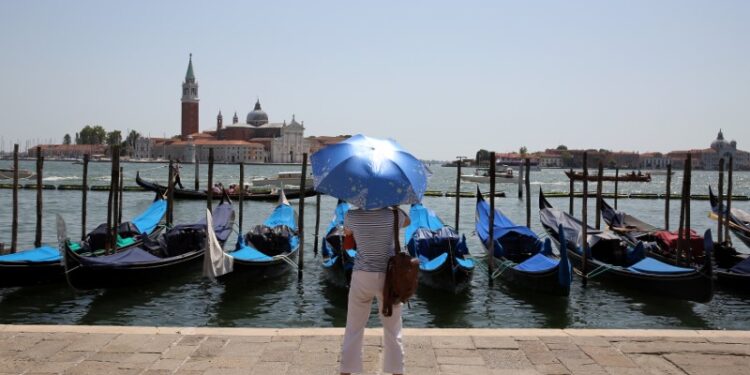Europe is once again in the grip of a deadly heatwave, with temperatures soaring above 45°C in parts of Spain, Italy, and Greece, and health officials warning that hundreds – potentially thousands – of excess deaths could occur before the week is out. The brutal conditions, fuelled by the accelerating climate crisis, are pushing infrastructure, healthcare systems, and vulnerable communities to their breaking point.
From scorched farmland in Andalusia to melting tarmac in Marseille, the extreme heat has become an annual horror across the continent. Hospitals are already reporting spikes in heat-related admissions, while wildfires are flaring across the Mediterranean. In Athens, schools have been forced to close, and emergency crews are on high alert as dry winds threaten to spread flames across parched forests and suburban fringes.
This is not just weather – it is a warning. Scientists have long cautioned that climate change would intensify the frequency and severity of heatwaves, and Europe has emerged as a frontline for these impacts. According to the EU’s Copernicus Climate Service, last summer alone saw over 60,000 excess deaths linked to heat. This year could be worse.
The elderly, outdoor workers, and low-income households without air conditioning are at particular risk. In cities with poor urban planning, so-called “heat islands” are amplifying the crisis, with dense concrete landscapes trapping and radiating heat well into the night. Governments have issued advisories, but critics argue that long-term adaptation – from greening cities to modernising housing – remains dangerously behind.
Beyond the immediate human toll, the heat is delivering a sharp economic blow. Crop yields are expected to suffer once again, particularly for olive oil and grape harvests. Tourism, a cornerstone of southern Europe’s economy, faces growing disruption as airlines cancel flights and heat-stricken destinations become health hazards rather than havens.
Environmental campaigners say this moment must be seen not as an anomaly, but as the new normal, and a direct consequence of global emissions. Europe has made strides in climate policy, but emissions continue globally at a pace incompatible with the Paris Agreement. The heatwave is not confined by borders, nor are its causes.
What we are witnessing across Europe is not simply a summer emergency. It is the lived experience of planetary warming, brought forward by decades of delay, denial, and underinvestment in adaptation. The question is no longer whether climate change is real, but whether societies are prepared to act fast enough to limit the suffering it now brings with increasing regularity.
REFH – newshub finance




Recent Comments